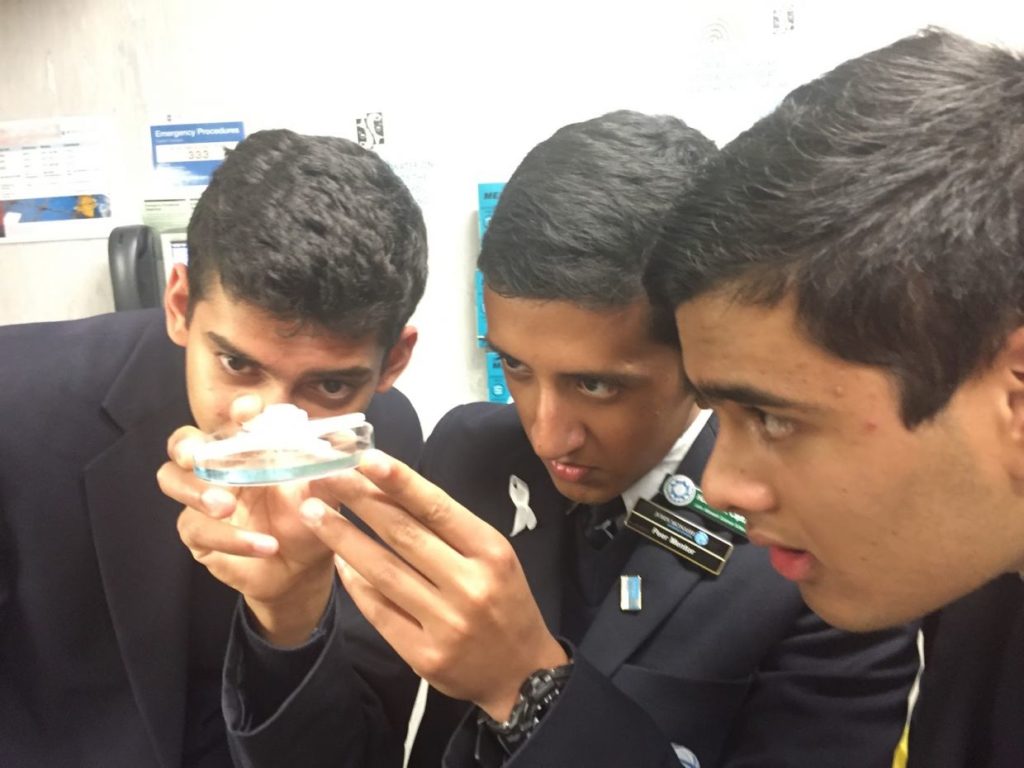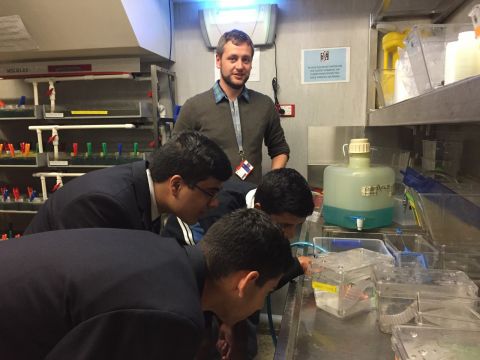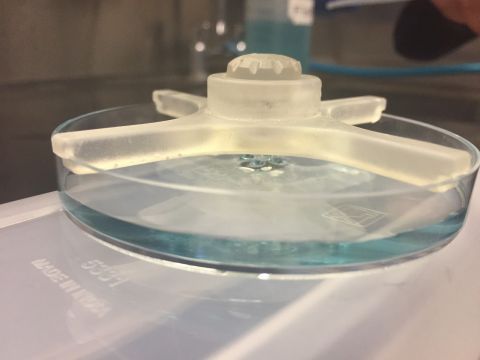ARMI’s ‘Dynamic Teenage Trio’ contends in iAwards for scientific device

A dynamic trio of year 11 students from the John Monash Science School (JMSS) have made waves within the scientific community. In collaboration with ARMI, the trio developed a movement inhibitor device to better analyse zebrafish models in research. The device, in recognition of its uniqueness and innovation, earned them a place at this year’s national iAwards as a national contender.
Facilitated by the BioEYES program at Monash University, students Aashutosh Sapkota, Angad Singh and Praneel Chugh worked closely with ARMI Research Fellow, Dr Alasdair Wood. Through first hand experience at ARMI’s AquaCore facility and laboratories, (the largest Zebrafish facility of its kind in the southern hemisphere), JMSS students gained an appreciation of the capabilities of regenerative medicine.
By working alongside ARMI researchers, the trio gained insight into the important role zebrafish play in growing understanding of the potential of human regeneration. By sharing similar genetics to zebrafish, scientists hope to one day mimic the regenerative processes the fish use to heal themselves, in humans. As a result, a lot of time is spent with these small creatures and it was here the students first spotted an opportunity.

This innovation impressed Dr Wood. “The students recognised that our previous devices weren’t up the the job” commented Alasdair. “So over a 6 month period they produced several prototypes before eventually creating a viable device. In reflection of their dedication and ability to navigate hurdles, it was no surprise to see them make it to the iAwards.”
ARMI Director of Research, Professor Peter Currie, supported Dr Wood’s comments – “The students’ ability to come up with ideas left of field was invigorating. We were able to pair up young, creative minds with the intellectual ability of our staff. The result is inspiring.”
Reflecting back, the closure of the awards highlights the success this collaboration brought for both parties involved. For the students at JMSS, being immersed amongst the scientific community is a crucial step in introducing the working life of a scientist, giving them invaluable experience within the field. For ARMI, they were able to access the young, innovative minds of the students to create a new viable viable movement impediment device.

“We are extremely proud of the achievements of our Year 11 John Monash Science School students” commented Head of Science at JMSS, Mark McTier. “With the mentorship of Dr Alasdair Wood and their teacher Maxine Rofe, they have shown incredible ingenuity and perseverance with seeing their project through to completion. This type of collaborative innovation would not be possible without the close relationship between JMSS and Monash University’s Australian Regenerative Medicine Institute (ARMI).”
Hosted by the Australian Information Industry association (AIIA), the iAwards is an national annual event established to celebrate the outstanding homegrown innovation in Australia. Held in the Melbourne over two days, the event began with an innovation showcase, where finalists pitched their work to a panel of judges and finished with a gala presentation dinner. Though the team might not have walked away as national winners, the teams contribution to Victoria earned them a state victory and one that ARMI is extremely proud of. We wish the students all the best in the future.
